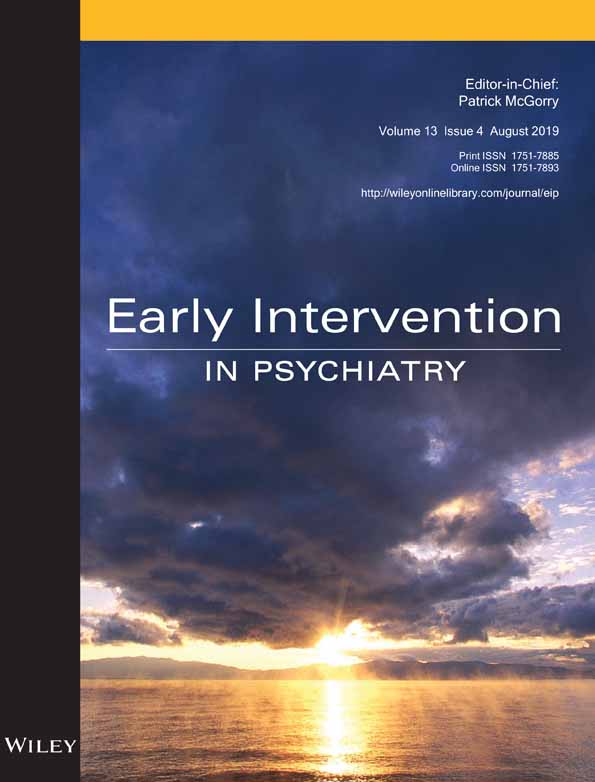High-risk sexual behaviour in young people with mental health disorders
Abstract
Aim
This study aimed to determine the prevalence of high-risk sexual behaviours, sequelae and associated factors in young people attending a youth mental health service.
Methods
The study design was a cross-sectional survey of 103 young people aged between 15-25 years carried out across four specialist mental health clinics. A questionnaire on the sexual health of secondary level students was adapted for this study. Mental health symptomatology was assessed through the Brief Psychiatric Rating Scale (BPRS).
Results
The mean age was 20.9 (SD ±2.8) years, with 50.5% being female, 41.7% male and 7.7% transgender. A total of 52.4% (N = 54) attended the psychosis [EPPIC] clinic; 15.6% (N = 16) attended the ultra-high risk for psychosis [PACE] clinic; 19.4% (N = 20) attended the personality disorders [HYPE] clinic; and 12.6% (N = 13) attended the mood clinic [YMC]. The mean BPRS score was 47.7 (SD ±12.2). A total of 77.7% of young people had previously been sexually active and of these, 37.5% did not use consistent contraception; 26.3% had been pregnant, of which 95.2% were unplanned. A total of 68.8% reported having been tested for sexually transmitted infections and 25.5% tested positive. The severity of symptoms or clinical characteristics were not associated with engagement in high-risk sexual behaviours.
Conclusions
These results indicate that young people with mental health disorders have high needs in regard to their sexual health, which could be addressed by incorporating sexual health referral pathways into early intervention services.




